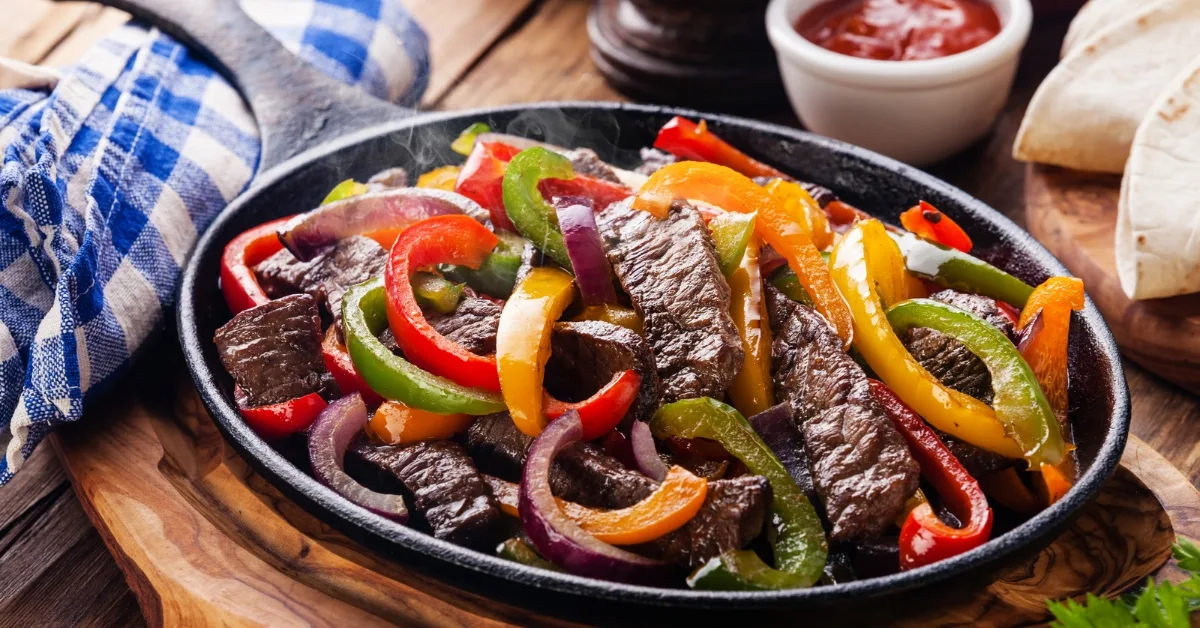"Find out the nutrition facts on beef heart, a protein superfood that's packed with vitamins, minerals, and other nutrients....
"Find out the nutrition facts on beef heart, a protein superfood that's packed with vitamins, minerals, and other nutrients."
Beef heart is not the first food you may think of when it comes to nutrition, but there are so many great nutrients in this underrated cut that your body will love you for it. Infrequently consumed, beef heart contains all the necessary protein, vitamins and minerals to maintain good health. What’s the fuss about beef heart health? Let’s dive in.
Why Is Beef Heart a Special Diet?
Beef heart is a lot more than just another meat. For instance, it’s high in protein, low in fat, and full of vitamins and minerals. It’s actually rather lean compared to other cuts of beef, but it’s also insanely good. Consider it the secret sauce for those who want to step up their nutrient game without breaking the bank.
Why It’s a Superfood?
What makes it a superfood, you say? For one thing, it’s chock-full of CoQ10, a chemical essential for energy production and cardiovascular health. It is also higher in vitamins and minerals than most conventional beef cuts. Also, it’s nature’s multivitamin in a mouthwatering package.
Nutrition Analysis of Beef Heart - The Total Meal Summary
Macronutrients
Protein Content
Beef heart is very rich in protein, so it is the go-to choice for sportsmen and weight-lifters. 100 grams of beef heart gives you more than 20 grams of high-quality protein. It’s like your gym buddy in a can! Also, it’s super lean and very digestible.
Fat Profile
Beef heart is low in fat, but the fats that it does contain are good for your heart. Omega-3 fatty acids, for example, and other healthy lipids promote general health.
Micronutrients
Essential Vitamins
Beef heart is high in vitamin B12 and riboflavin. These are vital to maintaining good energy levels and a functioning nervous system. In addition, one serving gives you your recommended daily dose of B12, a necessary ingredient for the creation of red blood cells.
Key Minerals
Beef heart is loaded with iron, phosphorus, and zinc. These minerals help to carry oxygen, maintain bone mass, and support the immune system. In contrast, deficiency of these nutrients can cause tiredness and other disorders. Every time you eat beef heart, you’re essentially revving your engine.
Health Impacts of Beef Heart Protein Foods
Cardiovascular Benefits
High in CoQ10 and low in toxins, beef heart has your heart in its sights. But moderation is the key to a well-balanced diet. It’s ironic, isn’t it? Diet heart for heart health.
Boosting Energy and Stamina
B Vitamins and iron present in beef heart help combat fatigue and promote endurance. Plus, all these nutrients make it a natural energy drink unlike those sugary stuff.
Supporting Muscle Growth
Protein is the key to maximizing muscle mass, and beef heart packs a punch. Lifting weights, or just being physically active, is a great way to feed your muscles. Additionally, the low protein level supports tissue repair and growth effectively.
How To Get Beef Heart Nutrition In Your Body (Again)
Delicious Recipes
From stews to grilled skewers, beef heart is a versatile meat and can be prepared in numerous ways. For instance, try marinating it with spices and herbs for an exotic meal. Moreover, using it in tacos or stir-fries is an easy way to get the most out of it.
Cooking Tips for Beginners
Are you wondering how to make it? Start by cutting it in thin slices and frying it with onion and garlic. Keep in mind that less is more when it comes to roasting organ meats. Conversely, overcooking makes it difficult, so keep it simple and delicious.
Does Beef Heart Nutrition Work for Everyone?
Dietary Restrictions and Considerations
Beef heart is a nutritious one, but not everyone will enjoy it. For example, vegetarians or vegans would have to reject it. In addition, you should never introduce new foods without first taking into account your individual diet requirements.
Who Should Avoid It?
Anyone with certain conditions like high cholesterol should talk to their physician before trying beef heart. But for the most part you can take it with caution as part of a balanced diet.
Ethical and Sustainable Nutrition from Organ Meat Foods
Reducing Food Waste
When you eat organ meats such as beef heart, you reduce food waste and utilize every cell of the animal. For example, it is both good for you and good for the world. Plus, you’re promoting more sustainable food choices.
Supporting Local Farmers
Buying organ meats directly from the farmer ensures sustainability and creates small businesses. It’s also an excellent way to make sure you have quality products.
Conclusion
Beef heart is one of the nutritional kings of nutrition you have to try. Because it is rich in protein, vitamins, and healthy fats, it’s a low-cost, sustainable way to supplement your nutrition. Plus, it’s a great way to rotate your meals. Try it out and you may just love this underappreciated style.
Ready to take the plunge? Make an effort to start at your local butcher or farmers’ market and get some freshly cooked beef heart. So whip up a yummy recipe and see the benefits for yourself. We’d love to hear your feedback! Leave your favorite beef heart recipes or an update on your experience with this superfood.
FAQs
How do you cook beef heart for beginners? Begin with something as simple as browning thinly sliced onions and garlic.
Is Beef Heart High In Cholesterol? Although it is cholesterol-free, it’s not packed with bad fats. Take it to a doctor if you’re worried.
Can I freeze beef heart? Absolutely! You can keep it in an airtight container and it will last you three months.
So what is beef heart? It’s actually quite mild, and tastes like a very thin steak.





.jpg)
No comments